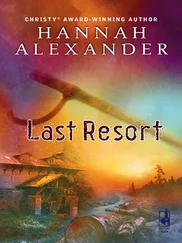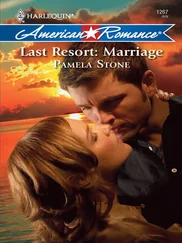It hadn’t been Jenny’s idea and wasn’t her usual practice to leave the dishes. But after their guests had gone Wilkie had insisted on her coming to bed, hardly giving her time to put away the leftovers—something he’d not done for years.
That was wonderful of course; but it was also one more example of the erratic behavior of her husband over the last few months. He was sleeping irregularly again: almost every night, if Jenny woke he would be gone. Once when she mentioned this the next morning, and asked again if there were something on his mind, he had almost exploded. “I really wish you wouldn’t keep asking that,” he’d snapped in a tone that made Jenny recoil and recall the birthday crackers that used to frighten her as a child. “You worry too much, you know,” he had added, less explosively and with an indulgent but impatient smile, as if he were speaking to a fearful child. It was the manner he had toward her often now, as if he knew something she didn’t know, perhaps something awful.
But though Wilkie was so strange with her, so disconnected, he seemed to be getting back in touch with the rest of the world. He had started reading his correspondence and accepting invitations to write articles, to lecture and attend conferences and serve on panels—and now without any of the concern about fees and travel expenses he had irritably voiced last fall. “It doesn’t signify, darling. I can afford it, after all,” he said when Jenny pointed out that the letter about the symposium in Washington didn’t mention airfare.
Wilkie had also agreed to last night’s dinner party; and during most of it he had been affable and animated. He was full of ideas and opinions—some almost extravagantly upbeat, as with his extended praise of Molly’s deceased husband; others sardonically downbeat, as when describing the future of the northeastern woodlands. But soon after ten, when they were sitting over brandy and decaf, he lapsed into a preoccupied silence that caused their guests to rise and say that they must be getting home.
Wilkie continued to spend most of the day in his study, but now Jenny knew he was working, since on Monday morning he’d sent her to the library for books. It was a bizarre selection, however, even a disturbing one. The volumes on the diseases of plants, animals, and humans, and those on death and dying, presumably meant that The Copper Beech would be a tragedy, a warning to the world; that its last chapter would expand to mention many other losses and extinctions. But what explained the books on the Gulf Stream and ocean currents, or those on wills and copyright law?
She would find out soon, because yesterday, just before their guests arrived, Wilkie had revealed that The Copper Beech was almost finished. There were a couple of changes he still had to make, he said, but in a few days the manuscript should be ready for her. “Oh, that’s wonderful news!” Jenny had cried out, and kissed him impulsively, almost laughing with joy and relief. He had not kissed her back.
It’s not that he’s angry with me, she tried to tell herself as she scraped dried seafood bisque off Alvin’s expensive and hideous green and orange art-deco crockery. It’s just that he’s been working so hard, even harder than usual. After all, he’s been finishing a great book—perhaps his greatest book. Probably that was why he’d been so strange and distant. That was why, for weeks, his silence and absence had weighed on her like stone, and why whenever she moved nearer in bed he had shifted away.
But now, perhaps, all this was over. Last night Wilkie had embraced her eagerly and almost rushed her into the bedroom. Breathing hard with pleasure and anticipation, Jenny had helped him peel off her chiffon party dress printed with pale-brown leaves and ferns; she had tousled his hair as he bent to kiss her breasts, rubbed against him, done all the private, affectionate things she had been longing to do for weeks.
In the end, as had sometimes happened in the last few years, her pleasure had been more complete than his. No doubt the gin and wine and brandy Wilkie had drunk, the lateness of the hour, and the labor of finishing his book were responsible. And this morning, when he’d looked so cross and hardly spoken to her, he was probably just hungover. But none of that was important, Jenny told herself. The important thing was that they had made love again, and that The Copper Beech was almost finished.
And once it was finished there would be so much for her to do: the final draft to edit; notes and quotations to go over; illustrations to find; captions to write; correspondence with Wilkie’s agent, editor, and lecture agent—Their life together would begin again; it would be full and satisfying again.
They’d been through a difficult time, Jenny admitted that to herself now. Their daughter, Ellen, had probably been right: Wilkie had been depressed, or at least very preoccupied. And Billy had been right too: it had been good for Wilkie to come to Key West. And for her too. The excuse she’d used had turned out to be true: she hadn’t had a cold since they arrived. Besides, she’d made an interesting new acquaintance.
No, not an acquaintance, Jenny thought: Lee Weiss was already a friend. It was surprising, because Lee was so different from her other friends, but Jenny was starting to like her as well as or maybe even better than most of the women she knew in Convers. It was a different kind of relationship than any she had at home though, because it had nothing to do with her being Mrs. Wilkie Walker. Lee, in fact, didn’t seem very interested in Wilkie, probably because she didn’t care about nature and the environment. Really, if you were honest about it, you’d have to say that Lee was an anti-environmentalist, the first one Jenny had met in years. There were lots of them around, of course, but naturally the Walkers didn’t see much of them.
Lee was open about her opinions—her prejudices, Wilkie would have called them. When Jenny mentioned that her husband had probably done more than anybody in America to save endangered species, Lee wasn’t impressed. “The thing is,” she’d said, “I grew up in Brooklyn. The main endangered species there is Homo sapiens. And Femina sapienta even more.”
But surely, Jenny protested, rather shocked, it was possible to care about both people and animals.
“Maybe,” Lee said. “But that’s not usually how it works out in real life. Like for instance, suppose there’s this kind of ugly inedible fish that’s only found on the reef off Key West, and you tell me you’re trying to save it from extinction. Okay, why not, I say. But then I find out you want to ban fishing and snorkeling, the way some morons here are proposing. You do that, and half the guys who work on the charter boats will be out of a job, and that includes good friends of mine. I figure the important thing to save right now is people.”
As Jenny heard these heretical remarks, made with smiling ease in Lee’s kitchen over a wonderful lunch of fresh shrimp and avocado salad, her mouth fell open, and she felt unable to reply.
“You know what my mother used to say?” Lee had continued. “She said that nobody’s supposed to care as much for people they never met as for their own family and friends. And I figure that goes double for fish.”
It was rather awful, the way I didn’t protest then, Jenny thought as she finished loading the dishwasher and poured green environmentally-friendly detergent into the plastic cup. All I said was that I couldn’t really agree with Lee, and then I let the subject float away. Why wasn’t I more forceful, more definite? If Wilkie had been there he would have been surprised, maybe even angry. He would have thought I was a coward.
And in fact, after that Jenny had hardly mentioned Wilkie’s ideas to Lee. But it wasn’t cowardice, she told herself as she heaved another stack of food-encrusted pots into the sink. It was because I knew my arguments wouldn’t convince her of anything—not yet, anyhow. Until we know each other better, they’d only make her unfriendly, maybe even turn her away from me.
Читать дальше












